|
100th interview BigChilli with Diplomats Mongolian Ambassador puts cooperation at the top of his agenda
Words MAXMILIAN WECHSLER
His Excellency Tugsbilguun Tumurkhuleg began his term as Mongolian Ambassador to the Kingdom of Thailand in August 2015. He’s one of the younger members of the Bangkok diplomatic corps and may be the only member who has studied formally at a Thai university. His father, also a career diplomat, served as Mongolian ambassador to Laos in the mid-1990s.
The younger Tumurkhuleg lived with his family at the Mongolian Embassy in Vientiane most of that time, but came to Bangkok when he was 20 after he was accepted for a fellowship at Srinakharinwirot University. He studied the Thai language there in1994-1995. This is his first ambassadorial assignment, and he’s also accredited as ambassador to Malaysia and Myanmar, as well as Permanent Representative of Mongolia to the United Nations Economic and Social Commission for Asia and the Pacific (UNESCAP). As his term is coming to an end sometime this year, the ambassador was happy to sit down with The BigChilli for this interview. |
|
Background
Ambassador Tugsbilguun Tumurkhuleg was born in February 1974 in the Algerian capital of Algiers, where his father was posted at the Mongolian Embassy. “I don’t have Algerian nationality, however. Three months after I was born we went back to Mongolia. We returned to Algeria when I was five, and stayed there until I was eight. My father is fluent in French and therefore was mostly posted to French-speaking countries. He was posted twice in Algeria as attaché and then as second and first secretary. He served once in France as counselor and was an ambassador to Laos. “I visited Thailand for the first time in 1991. I was on the way to meet my parents in Laos and I stopped in Bangkok, spent a few days here and continued on to Vientiane. My father was a Mongolian ambassador to Laos from 1991 to 1996 and he also had responsibility for Thailand and Cambodia. For most of that time I stayed with my parents in Laos. I became very interested in Southeast Asia and Thailand in particular. That’s why I applied for a fellowship at Srinakharinwirot University, and I was very happy to be accepted.” This is Mr Tugsbilguun’s second posting in Bangkok. He served as attaché at the Mongolian embassy here from 2004 to 2007. Just 46 years old, the ambassador has held several other important positions since joining the Mongolian Ministry of Foreign Affairs (MFA) in 1999 (see CV). |
Blooming bilateral relations
“Our embassy here has four Mongolian diplomats and one local staff. My family and the families of other Mongolian staff live nearby the embassy, which is on Soi Ekkamai 22. We moved to this location from a place on Asoke Road in 2006. We are close to some government offices and the embassies of Bangladesh, Nepal and Egypt among others. Previously, one of our embassy staff was looking after both consular affairs and UNESCAP, but this became too much for them. With a growing number of Mongolians visiting Thailand, we now have a consular officer fully dedicated to the consular affairs, after separating UNESCAP and consular portfolio.
“There’s no Thai embassy in Ulaanbaatar, the Mongolian capital; the Thai embassy in Beijing has responsibility for Mongolia. Thai colleagues tell me that Mongolia is at the top of the list for new Thai embassy locations, and we are looking forward to that day. Mongolia has three other embassies in Southeast Asia, in Singapore, Vietnam and in Laos. Vietnam and Laos are our long-standing friends and traditional partners. We established embassies in our respective countries because we were in the same camp under the old global political system, and we are happy to maintain our traditionally friendly ties now that things have changed.
“There are 49 Mongolian diplomatic missions around the world including embassies, missions to UN and consulates, and our economic growth makes it possible and worthwhile to maintain them. We have big embassies in Moscow, Beijing, Washington DC, Tokyo and in Seoul, while other embassies are comparatively small. Our embassy in Bangkok is about average in size.
“Our embassy here has four Mongolian diplomats and one local staff. My family and the families of other Mongolian staff live nearby the embassy, which is on Soi Ekkamai 22. We moved to this location from a place on Asoke Road in 2006. We are close to some government offices and the embassies of Bangladesh, Nepal and Egypt among others. Previously, one of our embassy staff was looking after both consular affairs and UNESCAP, but this became too much for them. With a growing number of Mongolians visiting Thailand, we now have a consular officer fully dedicated to the consular affairs, after separating UNESCAP and consular portfolio.
“There’s no Thai embassy in Ulaanbaatar, the Mongolian capital; the Thai embassy in Beijing has responsibility for Mongolia. Thai colleagues tell me that Mongolia is at the top of the list for new Thai embassy locations, and we are looking forward to that day. Mongolia has three other embassies in Southeast Asia, in Singapore, Vietnam and in Laos. Vietnam and Laos are our long-standing friends and traditional partners. We established embassies in our respective countries because we were in the same camp under the old global political system, and we are happy to maintain our traditionally friendly ties now that things have changed.
“There are 49 Mongolian diplomatic missions around the world including embassies, missions to UN and consulates, and our economic growth makes it possible and worthwhile to maintain them. We have big embassies in Moscow, Beijing, Washington DC, Tokyo and in Seoul, while other embassies are comparatively small. Our embassy in Bangkok is about average in size.
“In terms of bilateral relations with Thailand, my time here has been very busy and eventful. One of my main goals, even before coming to Thailand as ambassador, has been to initiate the inter-governmental mechanism of cooperation that was agreed on during the visit of the Thai Prime Minister to Mongolia in 2013.
“At that time, our two governments signed an agreement to set up a Consultative Body on Bilateral Cooperation. In 2018 we organized the first session of this body, which took place in Mongolia. The Thai side was represented by Mr Damrong Kraikruan, deputy permanent secretary of the Thai MFA. In launching this mechanism, we expect not only political cooperation but also cooperation in economic, trade, investment, tourism and other areas. The next meeting is expected to be held here in Thailand sometime this year.
“Another high moment of cooperation was when Thai Prime Minister General Prayuth Chan-o-cha attended the 11th Asia-Europe Meeting Summit (ASEM11), held in July 2016 in Ulaanbaatar. Gen Prayuth met with our President as well.
“A big achievement for our embassy and our colleagues in Thailand was when Bangkok and Ulaanbaatar became sister cities. The governor of Ulaanbaatar came to Bangkok in August 2017 and signed an agreement establishing the sister-city relationship.
“In October 2017 direct air flights between Bangkok and Ulaanbaatar were resumed after being suspended for a time. The flights are operated by our national air carrier, MIAT Mongolian Airlines, but they are only seasonal, from October to March. That’s when many Mongolian tourists like to come to Thailand, during our winter, especially during the New Year and the Lunar New Year. Mongolians love Thai beaches.
“Presently MIAT operates two flights per week, and the airline plans to extend the flights throughout the year. This will contribute to the already increasing tourism. A non-stop flight between our capitals takes about six hours. In 2019, over 10,000 Mongolians visited Thailand and more than 4,000 Thai nationals traveled to Mongolia. Thais don’t need a visa to visit my country.
“We are working to introduce various Thai technologies in Mongolia, for example the Royal Rainmaking Project initiated by His Majesty the late King Bhumibol Adulyadej. People from relevant agencies in Mongolia came here and called on Her Royal Highness Princess Maha Chakri Sirindhorn, who is very supportive of introducing the project in Mongolia. We are presently working on a draft MoU for cooperation on the project.
“The Mongolian government is also involved in a trilateral project for sustainable tourism with the Thailand International Cooperation Agency and the GIZ (German Corporation for International Cooperation). Some heads of local Mongolian administrative units came to Thailand with the aim of learning from the Thai experience on developing sustainable tourism and adapting measures and policies to Mongolian circumstances and conditions. We believe sustainable tourism is a very important concept.
“The embassy also works to promote business relations between our two countries. For example, a Thai company has invested in renewable energy in Mongolia. This has great potential. I facilitated contacts between Thai and Mongolian companies and representatives of these companies have already exchanged visits.”
“At that time, our two governments signed an agreement to set up a Consultative Body on Bilateral Cooperation. In 2018 we organized the first session of this body, which took place in Mongolia. The Thai side was represented by Mr Damrong Kraikruan, deputy permanent secretary of the Thai MFA. In launching this mechanism, we expect not only political cooperation but also cooperation in economic, trade, investment, tourism and other areas. The next meeting is expected to be held here in Thailand sometime this year.
“Another high moment of cooperation was when Thai Prime Minister General Prayuth Chan-o-cha attended the 11th Asia-Europe Meeting Summit (ASEM11), held in July 2016 in Ulaanbaatar. Gen Prayuth met with our President as well.
“A big achievement for our embassy and our colleagues in Thailand was when Bangkok and Ulaanbaatar became sister cities. The governor of Ulaanbaatar came to Bangkok in August 2017 and signed an agreement establishing the sister-city relationship.
“In October 2017 direct air flights between Bangkok and Ulaanbaatar were resumed after being suspended for a time. The flights are operated by our national air carrier, MIAT Mongolian Airlines, but they are only seasonal, from October to March. That’s when many Mongolian tourists like to come to Thailand, during our winter, especially during the New Year and the Lunar New Year. Mongolians love Thai beaches.
“Presently MIAT operates two flights per week, and the airline plans to extend the flights throughout the year. This will contribute to the already increasing tourism. A non-stop flight between our capitals takes about six hours. In 2019, over 10,000 Mongolians visited Thailand and more than 4,000 Thai nationals traveled to Mongolia. Thais don’t need a visa to visit my country.
“We are working to introduce various Thai technologies in Mongolia, for example the Royal Rainmaking Project initiated by His Majesty the late King Bhumibol Adulyadej. People from relevant agencies in Mongolia came here and called on Her Royal Highness Princess Maha Chakri Sirindhorn, who is very supportive of introducing the project in Mongolia. We are presently working on a draft MoU for cooperation on the project.
“The Mongolian government is also involved in a trilateral project for sustainable tourism with the Thailand International Cooperation Agency and the GIZ (German Corporation for International Cooperation). Some heads of local Mongolian administrative units came to Thailand with the aim of learning from the Thai experience on developing sustainable tourism and adapting measures and policies to Mongolian circumstances and conditions. We believe sustainable tourism is a very important concept.
“The embassy also works to promote business relations between our two countries. For example, a Thai company has invested in renewable energy in Mongolia. This has great potential. I facilitated contacts between Thai and Mongolian companies and representatives of these companies have already exchanged visits.”
Malaysia, Myanmar, UNESCAP
“My duties as ambassador for Malaysia and Myanmar take time and careful consideration on my part. In 2016 we organized a visit of our President to Myanmar. It was soon after the national election and the new Myanmar government was already sworn in. The Mongolian President was the first head of state to pay a visit after the elections in June 2016 and he and Aung San Suu Kyi enjoyed very good relations. I have visited Myanmar quite a few times myself to attend meetings or for bilateral talks.
“I have also visited Malaysia several times. We have an honorary consulate in Malaysia, and the honorary consul is a Malaysian national who is very helpful to me. We keep in contact and I am fully informed on what is going on there.
“I am also Mongolia’s Permanent Representative to UNESCAP. I have worked with this organization a great deal over the past four years. For example, I took charge of preparations when foreign minister came to Bangkok and chaired the 75th session of UNESCAP in May 2019. It had been 20 years since a Mongolian minister was elected to chair the session.
“We have also been doing a lot of work in promoting the Ulaanbaatar-based International Think Tank for Landlocked Developing Countries (LLDC). This inter-governmental organization was set up under our initiative because Mongolia has a keen appreciation of the problems, constraints and challenges a lack of maritime access present to LLDCs. There are many land-locked developing countries in the world, and we want to work with them to find innovative solutions.
“The think tank has the full support of UNESCAP. Last year Mongolia was elected to the governing boards of two institutions in UNESCAP – the Statistical Institute for Asia and Pacific and Asian and Pacific Centre for Development of Disaster Information Management.”
“My duties as ambassador for Malaysia and Myanmar take time and careful consideration on my part. In 2016 we organized a visit of our President to Myanmar. It was soon after the national election and the new Myanmar government was already sworn in. The Mongolian President was the first head of state to pay a visit after the elections in June 2016 and he and Aung San Suu Kyi enjoyed very good relations. I have visited Myanmar quite a few times myself to attend meetings or for bilateral talks.
“I have also visited Malaysia several times. We have an honorary consulate in Malaysia, and the honorary consul is a Malaysian national who is very helpful to me. We keep in contact and I am fully informed on what is going on there.
“I am also Mongolia’s Permanent Representative to UNESCAP. I have worked with this organization a great deal over the past four years. For example, I took charge of preparations when foreign minister came to Bangkok and chaired the 75th session of UNESCAP in May 2019. It had been 20 years since a Mongolian minister was elected to chair the session.
“We have also been doing a lot of work in promoting the Ulaanbaatar-based International Think Tank for Landlocked Developing Countries (LLDC). This inter-governmental organization was set up under our initiative because Mongolia has a keen appreciation of the problems, constraints and challenges a lack of maritime access present to LLDCs. There are many land-locked developing countries in the world, and we want to work with them to find innovative solutions.
“The think tank has the full support of UNESCAP. Last year Mongolia was elected to the governing boards of two institutions in UNESCAP – the Statistical Institute for Asia and Pacific and Asian and Pacific Centre for Development of Disaster Information Management.”
Personal
“I am now into the fifth year of my post as Ambassador to Thailand, and my term is coming to an end. I will leave in a few months. I have been so busy and the time has gone very fast. So many things have happened in my professional and private life. I will always cherish my time here. My family – myself, my wife and our two sons– have made many friends here.
We have all enjoyed our time in Thailand and we will miss it when we go home. We have visited many provinces, and we really love the beaches. Our favorite holiday destinations are Phuket and Hua Hin,” said Ambassador Tugsbilguun.
Asked about the most memorable events in his time as ambassador, he listed the presentation of his credentials to His Majesty King Maha Vajiralongkorn Phra Vajiraklaochaoyuhua, who was then the Crown Prince, the passing of His Majesty King Rama IX and the incredible outpouring of grief and affection from the Thai people, and finally the coronation of King Rama X.
“I think that because of the influence of Buddhism, Thai people are very tolerant. In a way almost every Thai person is like a diplomat, because they represent their country very well. People on the street are very friendly and helpful toward foreigners. Thais have an amazing ability to never lose face. This applies to almost all Thai people. So it’s not surprising that the Thai officials I have worked with and gotten to know here are all very good and able representatives of their country.
“As for the negatives, for someone from a cold country the heat and humidity of a tropical country is sometimes a bit much, but I’ve gotten used to it and so have my wife and kids. We have adjusted. For me especially it hasn’t been a real problem because I was born in Algeria, which has a hot climate, and have also lived in Laos and Australia. The only difficult thing about life in Bangkok is maybe the traffic.
“We also have traffic jams and pollution in Ulaanbaatar, which now has a population of over one million people. Compared to Thailand, Mongolia has much more open space. The total population is only about three million, and Mongolia is three times large as Thailand. As I have said, it is also a lot colder, but because of climate change the winters are warmer now.
“I am now into the fifth year of my post as Ambassador to Thailand, and my term is coming to an end. I will leave in a few months. I have been so busy and the time has gone very fast. So many things have happened in my professional and private life. I will always cherish my time here. My family – myself, my wife and our two sons– have made many friends here.
We have all enjoyed our time in Thailand and we will miss it when we go home. We have visited many provinces, and we really love the beaches. Our favorite holiday destinations are Phuket and Hua Hin,” said Ambassador Tugsbilguun.
Asked about the most memorable events in his time as ambassador, he listed the presentation of his credentials to His Majesty King Maha Vajiralongkorn Phra Vajiraklaochaoyuhua, who was then the Crown Prince, the passing of His Majesty King Rama IX and the incredible outpouring of grief and affection from the Thai people, and finally the coronation of King Rama X.
“I think that because of the influence of Buddhism, Thai people are very tolerant. In a way almost every Thai person is like a diplomat, because they represent their country very well. People on the street are very friendly and helpful toward foreigners. Thais have an amazing ability to never lose face. This applies to almost all Thai people. So it’s not surprising that the Thai officials I have worked with and gotten to know here are all very good and able representatives of their country.
“As for the negatives, for someone from a cold country the heat and humidity of a tropical country is sometimes a bit much, but I’ve gotten used to it and so have my wife and kids. We have adjusted. For me especially it hasn’t been a real problem because I was born in Algeria, which has a hot climate, and have also lived in Laos and Australia. The only difficult thing about life in Bangkok is maybe the traffic.
“We also have traffic jams and pollution in Ulaanbaatar, which now has a population of over one million people. Compared to Thailand, Mongolia has much more open space. The total population is only about three million, and Mongolia is three times large as Thailand. As I have said, it is also a lot colder, but because of climate change the winters are warmer now.
|
“I have visited many places in Thailand, not just during this posting but also during my first assignment. I studied Thai language in the 1990s and I can speak, read and write Thai. I am not really fluent but I have improved a lot since coming back in 2015. I received an award last year as a Thai language distinguished speaker, presented to me by the Ministry of Culture on National Thai Language Day, which occurs each year on July 29. My mother tongue is Mongolian and I am fluent in English and Russian, and can get by in French.
“I like all types of food. As for Thai food, I like it all – Isaan, Central and South. It’s all very delicious but sometimes maybe too hot. “My wife Doljinsuren is very busy looking after the family and she also devotes a lot of time to SHOM (Spouses of Heads of Mission) activities. She was on the organizing committee of the Diplomatic Red Cross Bazaar and last year she received a Red Cross medal from the hands of HRH Princess Maha Chakri Sirindhorn, on behalf of Her Majesty Queen Sirikit. “After returning to Mongolia I will continue working at the MFA. I am expecting to work in the capital for three or four years before being posted again. Before coming here, I worked at the MFA in Ulaanbaatar for three years. “In closing, I would like to thank the Royal Thai government, the MFA and Thai other ministries and organizations, and our friends, not only in the government but also the private sector and in various social circles, and all Thai people, for the hospitality, cooperation and assistance they have given us. My communications with the Thai MFA, the Bangkok Metropolitan Administration and other local organizations have all been excellent, as has the cooperation I have received from them. As a part of my work, I attend many functions like dinners and receptions organized by the Royal Palace, Thai government and by different embassies. “I also want to send a special greeting to the diplomatic community in Thailand, which is very close and supportive, maybe more so than in other countries. We meet very often and we become very good friends. Even after diplomats leave Thailand they will communicate through social media.” |
CV of H.E. Tugsbilguun Tumurkhuleg
Education Mr Tugsbilguun Tumurkhuleg graduated from the National University of Mongolia in 1999, specializing in British Studies and International Affairs. He received his Master of Arts (International Relations) degree with honours from the Australian National University in Canberra, ACT in 2008. From 1994 to 1995 he attended a Thai Language and Thai Studies Training Program at Srinakharinwirot University in Bangkok. Career A career diplomat, Mr Tugsbilguun joined the Ministry of Foreign Affairs (MFA) of Mongolia in 1999 and has served in various capacities at the ministry and missions abroad. • 2004-2007: Attaché at the Mongolian Embassy in Bangkok. • 2009 to 2011: Third Secretary, later Deputy Director-General, Department of the Americas, Middle East and Africa, MFA, Mongolia. • 2011-2012: Deputy Head of Mission and Counsellor, Embassy of Mongolia in Australia. • 2012-2015: Director-General, Department of Neighbouring Countries (Russia and China), MFA. • Since Aug 2015: Ambassador of Mongolia to Thailand (concurrently accredited to Malaysia and Myanmar) and Permanent Representative of Mongolia to UNESCAP. Publications Mr Tugsbilguun is an author of various articles on foreign policy, security, alliance politics, Shanghai Cooperation Organization and Central Asia, published in Mongolian and international publications. |

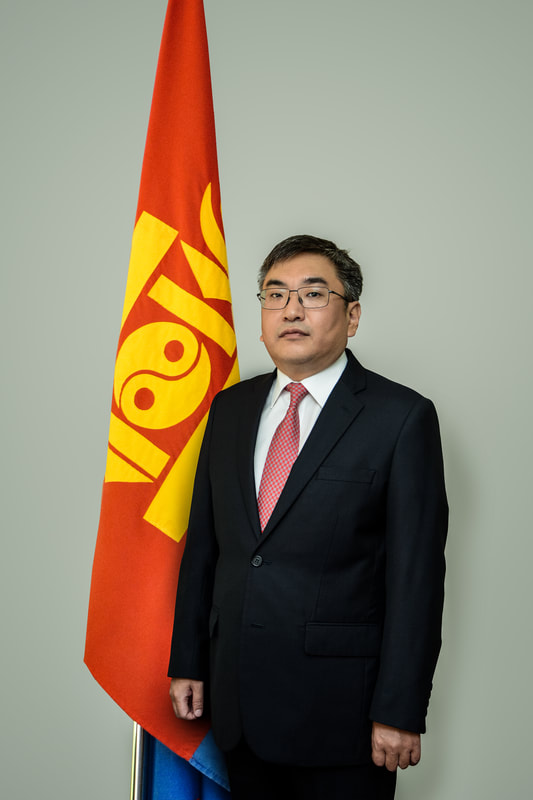
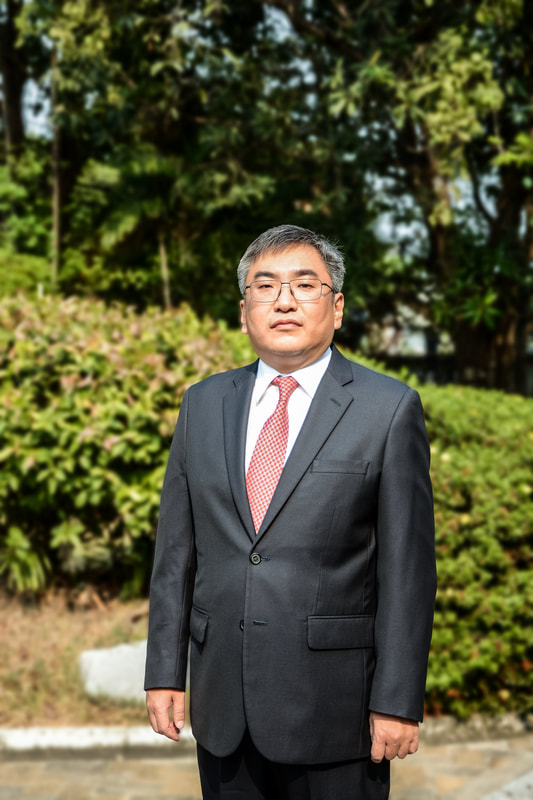
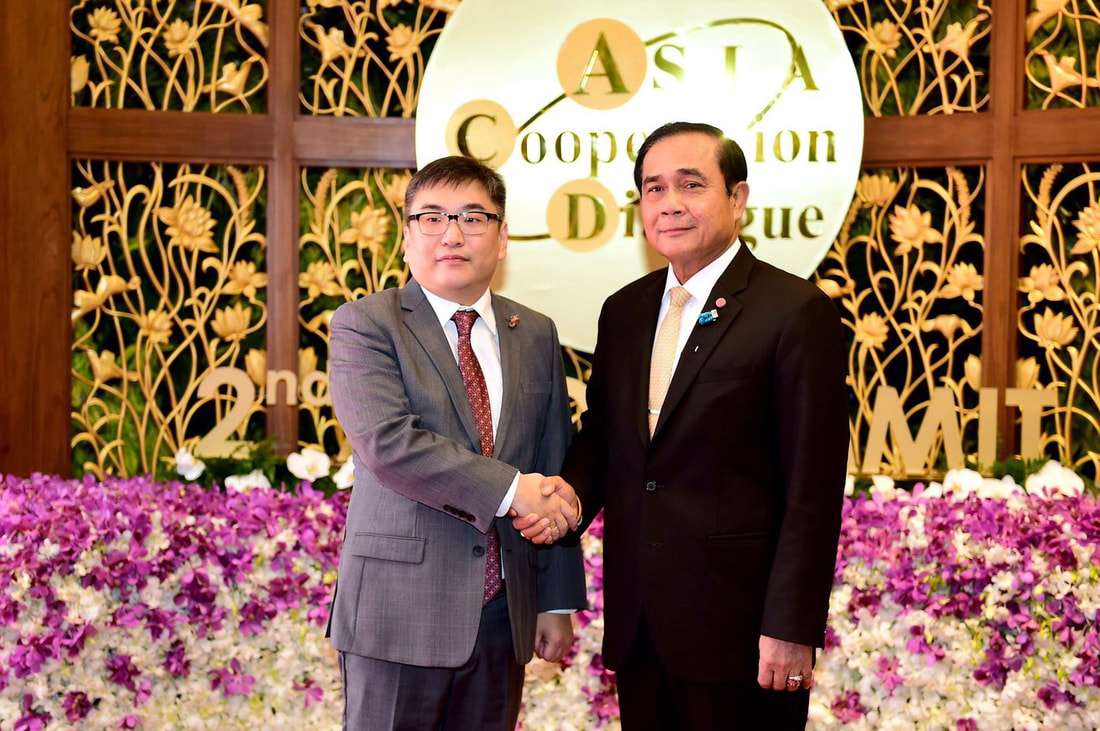
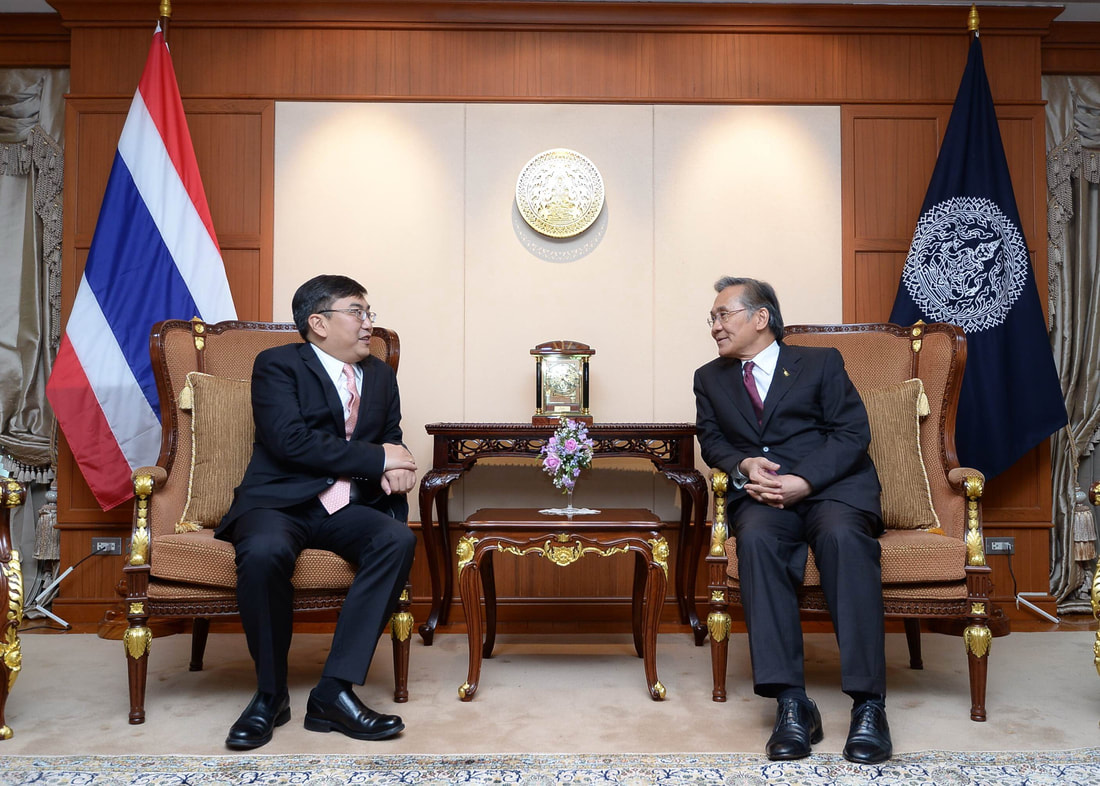
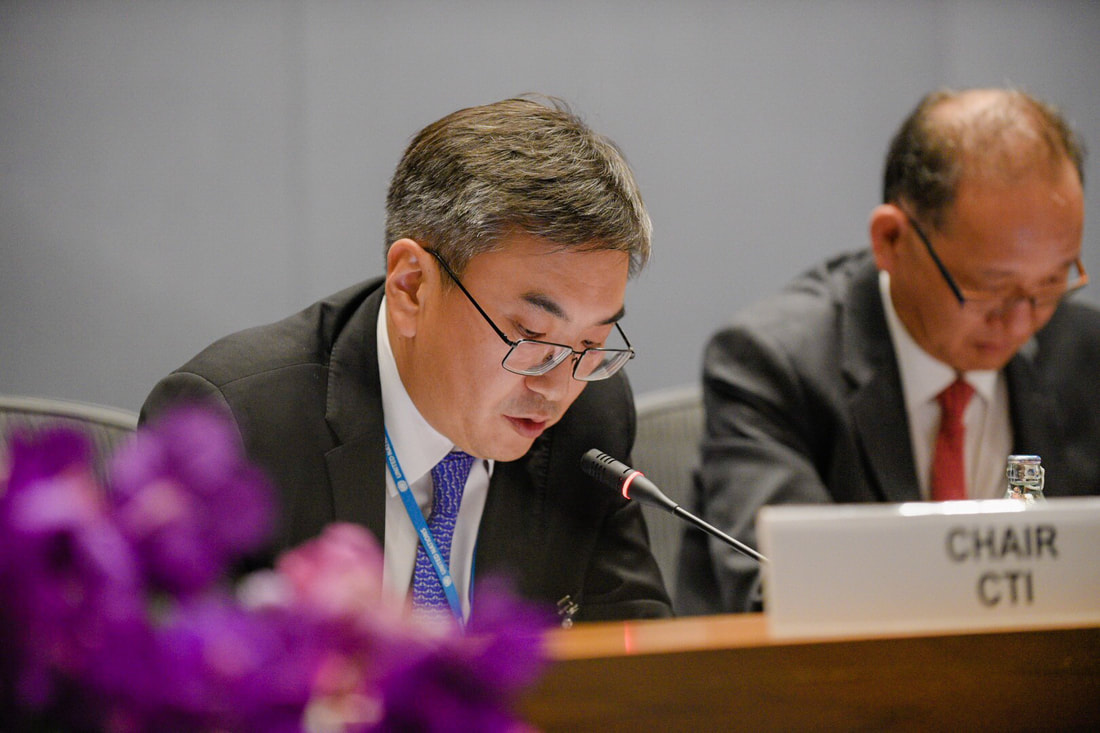
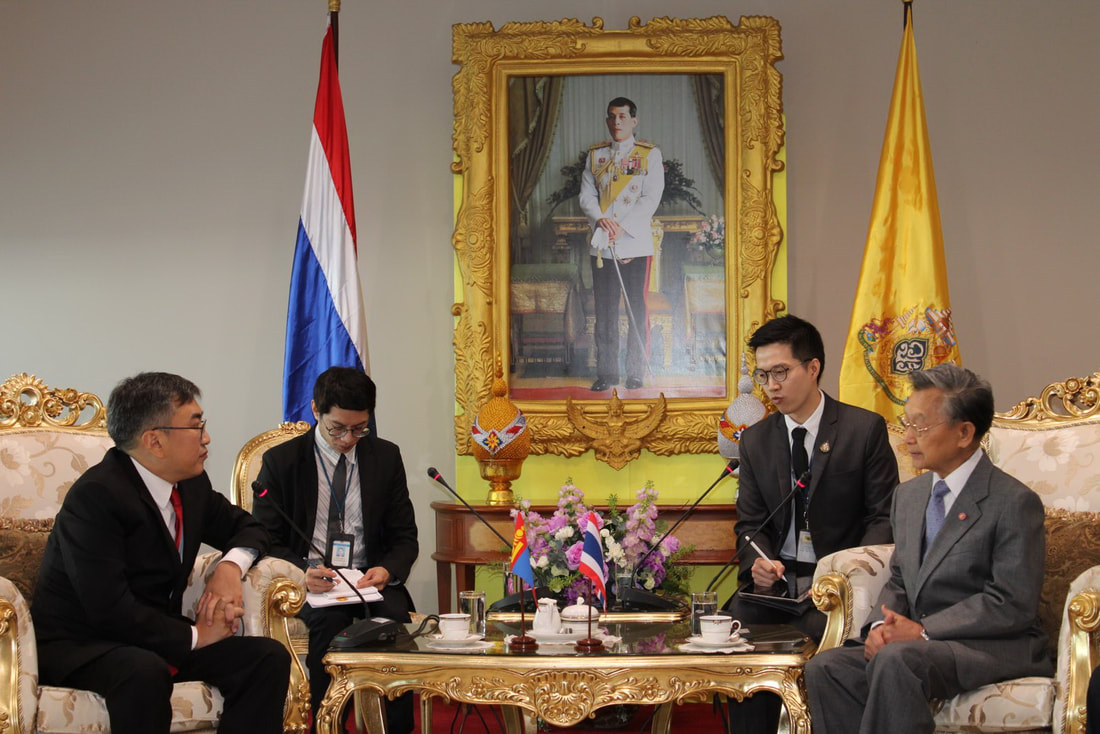
 RSS Feed
RSS Feed
















